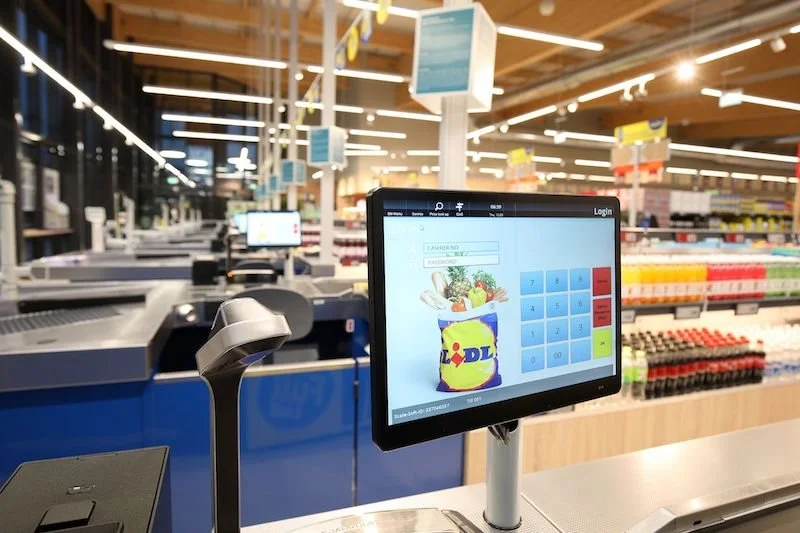Improving customer security: four things retailers can learn from online casinos
Success of security in retail is essential to a customer’s shopping experience and maintaining a business online. The online growth of retail has allowed businesses to prosper but it’s created security challenges for retailers which they’ve had to address.
That is not to say retailers haven’t done a good job of tackling it, as they have started to use two-factor authentication to access customer accounts and the option for digital wallets to make customer payments secure.
Some industries have been slower in implementing new technologies for security than others, some retailers have been able to do this due to having better financial resources and a need to improve security for business functionality.
Digital wallets require greater security because they remove the need for physical purchases, so businesses must use robust security methods suitable for online activity. Sectors where this is needed are e-commerce and online gaming where everything is processed digitally.
E-commerce stores love using digital wallets because they make transactions fast and remove high fees.
Similarly, the gaming sector loves e-wallets because they are multifunctional for storing digital currencies, receiving winnings, and making withdrawals. The functionality of digital wallets makes them most common in online casinos compared to other online gaming platforms.
As many online casinos have adopted cryptocurrencies, digital wallets are handy for those who use online casinos but no longer use bank or credit cards to play games.
Safe online casinos will use enhanced security measures for players' wallets and accounts through encrypting data. People who want to play in an online casino for real money must consider the security of the site and assess the effectiveness of the casino’s data encryption to ensure the protection of their currency.
To enhance consumer trust, digital platforms incorporate cryptocurrencies for this very reason – providing consumers with heightened levels of security, anonymity, and privacy, applied to games of all kinds, such as poker, baccarat, slots, and beyond.
In this guide, we will be exploring the idea that some online retailers could follow the steps taken by online casinos to improve their customers’ online experience. Without further ado, let’s dive into the security measures employed by online gambling providers, which should set the standard across all industries:
Use advanced encryption techniques for sensitive data
Encryption is important for e-commerce online retailers and individual sellers on sights like Vinted and Depop.
Encryption can be defined in many ways, but it is essentially the changing or moving around of data to make it intelligible to read or decipher for a specific person. If all online retailers used a process of encryption as casinos do, they could protect their customers’ privacy easily.
Casinos use encryption to protect financial transactions through advanced methods. Online retailers could use encryption technology to protect the storage of customer data. Customers who order from sellers on sites like Etsy have to give sensitive information like delivery addresses and sellers need to provide their shop address.
Sellers could implement encryption software to hide the customer’s address from everyone apart from them and the purchaser, ensuring no delivery mistakes or unwanted access to order information occurs.
Use real-time monitoring systems to detect strange activity
Strange account activity can happen in the online retail industry, often leading to frustration and distrust from customers towards retailers.
Online casinos have their algorithms and real-time monitoring systems which are used to detect any unusual activity on behalf of their customers, as algorithms analyse player behavior and follow the decisions players make in-game, enabling them to verify or flag certain customers.
Real-time data is useful for retailers in sales purposes to see what customers want, what they’re buying, and what they are browsing on their website.
Live data enables retailers to take note of their bestselling products and find new product ideas to generate revenue. Away from profit, real-time monitoring can be used to keep an eye on customer accounts and look out for suspicious activities, such as loading up shopping baskets and not buying anything.
Data provides hard evidence for retailers to flag accounts and protect their customers.
Using e-wallets for payments
The use of e-wallets in online casinos is normal, however, there are still some big names that don’t use e-wallets. A poll in Forbes in August 2023 revealed that 53% of Americans use digital wallets more than traditional payment methods, and over 50% of those users said they used their e-wallets in online retailers.
So, while many big companies accept various digital wallets, if all companies adopted it, they could improve their customer security by allowing them to use a unique wallet to buy their items, decreasing useless data storage, and reducing the possibility of unwarranted account activity or purchases.
Use two factor authentication for account verification and stop account takeovers
Research by Riskified showed that only a few years ago many retailers seemed unequipped to deal with account takeovers and account security risks for their customers.
Therefore to stop the lack of preparation, all online retailers should use two-factor authentication to verify accounts to protect from account takeovers. Customers start by entering their normal login verification with their account details and receive a prompt to use another form of identification to log in.
Some online casinos use time-sensitive codes and other casinos ask for further security information to log in. Many online casinos will use authenticator methods and sometimes apps to verify identities faster through details provided by the customer.
In some online casinos, a correct entry of information will give the customer a token or a one-time code or password to enter to gain access to their accounts.
The system could be used at checkout or after a purchase to confirm the purchase was warranted, eliminating the possibility of account takeovers.
Additionally, TFA in online retailers could be beneficial as it could give an added layer of security if login details are threatened. TFA would mean you’d need extra information to access the account in addition to the login and password, reducing the chance of unwanted people accessing sensitive customer information.































Continue reading...